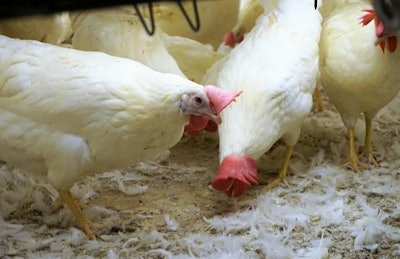
California Proposition 12 and cage-free legislation in Massachusetts are expected to have major effects on the US egg market when they go into effect on January 1, 2022. Egg Industry Insight conducted a survey of the largest U.S. egg producers to ask them about how they expect implementation of cage-free egg mandates in California and Massachusetts will impact supply and demand for eggs in the U.S. and how they plan to adjust their operations next year.
The survey was conducted online in late August and early September of 2022 and only one executive from each of the top U.S. egg producers was surveyed. Reponses were received from 25 egg producing companies who market the production of approximately 170 million layers or around 50% of the U.S. total.
The survey questions are listed below along with a summary of the results:
Q1: How long will supply and demand for eggs in the U.S. be disrupted by the implementation of cage-free mandates in California and Massachusetts?
Over 69% of respondents expect the U.S. egg market to be disrupted for at least the first four months of 2022, with 35% predicting the market will be disrupted for 7-12 months and 17% expecting markets to be disrupted into 2023. Only 26% of respondents said that the market would be disrupted for less than a month.

Q2: What will the impact of implementation of cage-free legislation in California and Massachusetts in 2022 be?
While 26% of respondents expect there to be a shortage of eggs from cage-free layers in California and Massachusetts markets, almost 44% of respondents believe that there will be a nationwide over supply of eggs from cage-housed hens.
Only 8.7% of respondents think there will be a nationwide shortage of cage-free eggs. Over 47% of respondents expect there will be an adequate supply of cage-free eggs for California and Massachusetts.

Q3: What are your plans for cage-free production in 2022?
Nearly two thirds of survey respondents currently produce cage-free eggs and said that they plan to increase production of cage-free eggs in 2022. Only two respondents report that they don’t current.yt produce cage-free eggs, but one of these said they would begin producing them in 2022.

Q4: How will the implementation of Prop 12 on 1/1/2022 affect your production for California?
Increasing the supply, 34.8% of respondents that produce cage-free now plan to increase their cage-free production for California in 2022. Additionally, 26.1% of respondents produce eggs for California from cage-housed hens now but plan to start producing cage-free to sell to California in 2022.
While 8.7% of the respondents produce caged eggs for California now but won’t produce cage- free for California in 2022, over 26% of the respondents don’t produce eggs for California now and likely won't start.
Q5: How will implementation of cage-free legislation in Massachusetts affect your production for that state?
Almost 70% of respondents stated they don’t sell eggs into Massachusetts now and likely won’t in 2022.
30% of respondents said they plan to produce cage-free eggs for Massachusetts in 2022, even though only 21% of all respondents are currently producing cage-free eggs for the state.

Potential egg shortages
Even though many egg producers have been changing their operations to cage-free laying systems, and multiple states have committed to cage-free laws, there are worries that supply grow rapidly enough to match cage-free egg mandates. The challenge ahead for egg producers to convert housing to meet mandates and future purchase pledges by major egg buyers has been described as “financially and logistically impossible” on multiple occasions.
Timing of any planned transition to cage-free housing is tricky. Convert too soon and an egg producer will sell cage-free eggs into the cage-produced egg market, most likely at a loss. Wait too long to convert, and a producer may lose customers who have to switch to cage-free eggs before the producer has converted. The cost of transitioning conventional housing into cage- free housing is significant.
It is still not clear how much space cage-free hens producing eggs for Massachusetts will have to be given in 2022. The Massachusetts Senate passed a bill on June 24, 2021, that will change the housing density mandate of the 2016 Question 3 law. Massachusetts is still operating under the regulation that all eggs produced and sold should be from hens with 1.5 square feet per bird, starting January 1, 2022. If legislature does not change the law, total chaos and massive egg shortages in Massachusetts are expected, according to Chad Gregory in a recent UEP briefing.
















